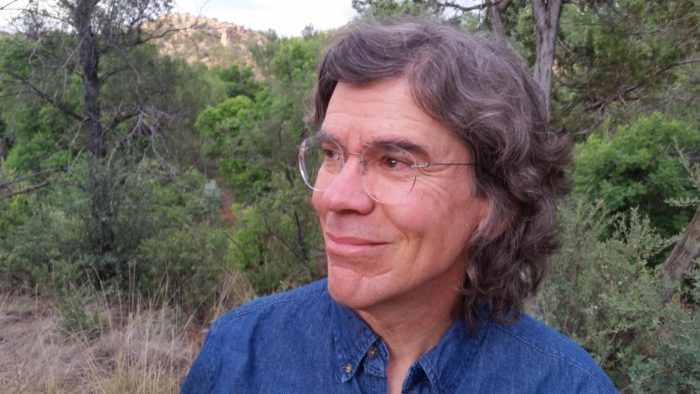Tyler Volk is professor of biology and environmental studies at New York University. In his just-released book, Quarks to Culture: How We Came to Be (Columbia University Press, May, 2017) Volk explores a rhythm within what he calls the “grand sequence,” which has progressed as a series of levels of sizes and innovations from elementary quanta to globalized human civilization. Identifying and defining “combogenesis” as the mechanism of creation of levels in the grand sequence, Volk shows how physics and chemistry led to biological evolution, and biological evolution to cultural evolution. His previous books include CO2 Rising: The World’s Greatest Environmental Challenge (2008); Gaia’s Body: Toward a Physiology of Earth (1998); and Metapatterns Across Space, Time, and Mind (1995). Volk is a recipient of the NYU’s Distinguished Teaching Award and Golden Dozen Award.

Tyler Volk
Participant In:
2:30 pm on Saturday, May 20th, 2017
Complexity and Emergence II: Visions of Cosmic Order, from Particles to People
What principles of order underlie the ascent of complexity, from the simplest particles of physics heralding the birth of the universe, through biological forms, to the achievements of civilization? Has a recurrent theme of combination and integration led to multiple fundamental levels from quarks to culture? What do we learn from the ongoing creative process... read more! »
Sat
20
May
20
May
2:30 pm on Saturday, May 20th, 2017
Complexity and Emergence II: Visions of Cosmic Order, from Particles to People
What principles of order underlie the ascent of complexity, from the simplest particles of physics heralding the birth of the universe, through biological forms, to the achievements of civilization? Has a recurrent theme of combination and integration led to multiple fundamental levels from quarks to culture? What do we learn from the ongoing creative process... read more! »December 1-3, 2017
Art and Science: The Two Cultures Converging
Man tries to make for himself in the fashion that suits him best a simplified and intelligible picture of the world; he then tries to some extent to substitute this cosmos of his for the world of experience, and thus to overcome it. This is what the painter, the poet, the speculative philosopher, and the... read more! »
Fri
01
Dec
01
Dec
December 1-3, 2017